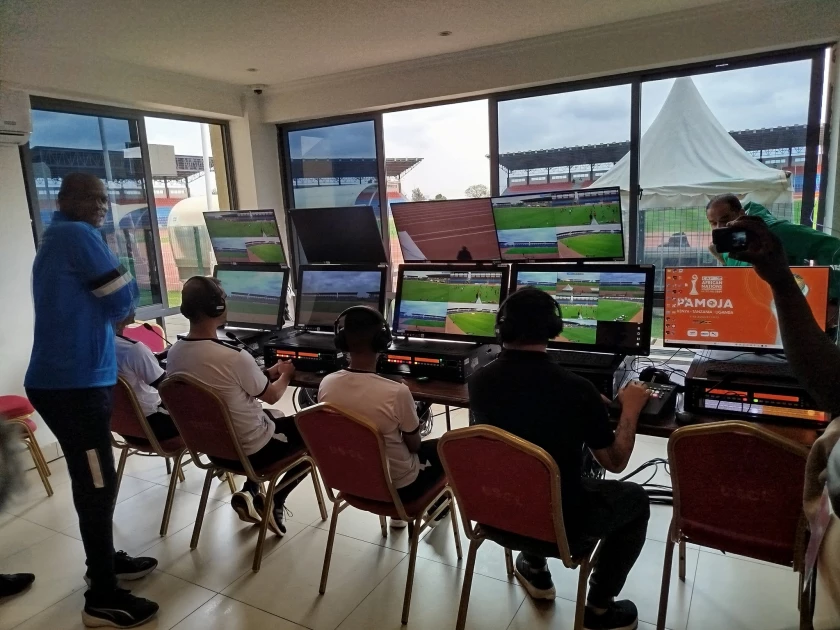CHAN: CAF hosts referees’ workshop to demystify VAR and modern officiating


Audio By Vocalize
The Confederation of African Football (CAF) on Tuesday held a referees’ training workshop at the Ulinzi Sports Complex in Nairobi as the 2024 African Nations Championship (CHAN) tournament enters its penultimate stage.
The session brought together accredited journalists covering the month-long tournament, offering them a rare chance to understand the technicalities, processes, and infrastructure behind modern refereeing, particularly the use of Video Assistant Referee (VAR).
The initiative comes amid heightened debate around officiating decisions in the ongoing tournament, especially after Harambee Stars striker Ryan Ogam’s goal was disallowed in their quarter final clash against Madagascar — a decision that sparked widespread debate both online and offline.
CAF Referees Vice Chairman Victor Gomez walked participants through the VAR process, stressing the emotional and professional weight decisions carry for match officials.
“One of the worst feelings that you can have is making a decision where you believe that this decision is correct and then when you get into your change room to view this incident again and you see that you’ve made an error of judgement. This is the worst feeling ever for an official,” Gomez explained.
“So having that opportunity to go to the screen or know that your decision is correct is a very rewarding feeling as an official. VAR is easier to stay; it is the future of refereeing.”
His sentiments were echoed by experienced Kenyan center referee Dickens Mimisa, who emphasized that the ultimate responsibility always lies with the on-field referee.
“What most people don’t know is that the decision is made by the referee, the VAR does not make it. The VAR only recommends that you come and have a second look. You can decide to stick with your original call or change it.
“When a referee gets it wrong and the VAR also gets it wrong, it becomes a very difficult situation for the organizers’ and the department. That is why we try as much as possible to avoid double errors,” Mimisa explained.
The workshop also celebrated progress in female refereeing in Africa, with Zambian official Diana Chikotesha — who made history as the first woman to officiate an AFCON final — sharing her journey.
“Being female in a male-dominated field is not easy. It only takes determination, hard work, and passion for the game. Female match officials have been extremely good, excellent. Very few countries can pick a girl child from the community and throw them on the podium of match officials, but more are now rising to the task,” she said.
Backing these perspectives, CAF Technical Director Mohammed Zidane clarified that VAR is designed to assist, not control.
“VAR is a tool to help the referee make the best decision. If the referee makes the correct call on the field, VAR confirms it. If something is missed, VAR prompts them to check. The officials are watching in real time, without delay, and when they find something, they highlight it instantly,” Zidan noted.
The day-long session also included a simulated match-preparation exercise, allowing journalists to observe how referees are briefed, trained, and supported before games.
As the tournament nears its climax, CAF underscored that such engagements with the media are vital in bridging the gap between officials, fans, and stakeholders — fostering better understanding of refereeing decisions and reinforcing integrity in the beautiful game.


Leave a Comment